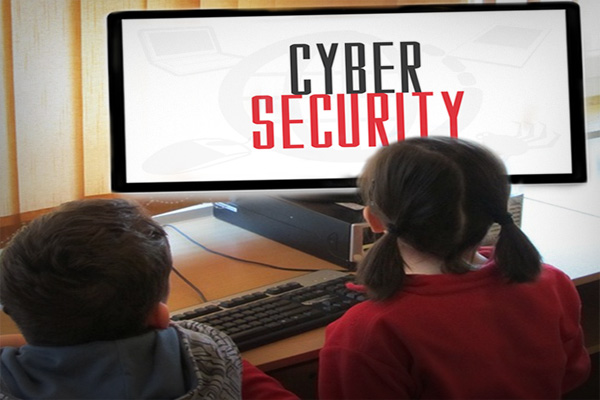Computing
Computer Safety
Online Safety for Kids
The best way to protect your kids when they start using devices (computer, a cell phone, or any mobile device) or begin socializing online is talking to them. Research suggests that when children want important information, most rely on their parents.
When your kids begin socializing online, you may want to talk to them about certain risks:
 Inappropriate conduct: The online world can feel anonymous. Kids sometimes forget that they are still accountable for their actions.
Inappropriate conduct: The online world can feel anonymous. Kids sometimes forget that they are still accountable for their actions.
 Inappropriate contact: Some people online have bad intentions, including bullies, predators, hackers, and scammers.
Inappropriate contact: Some people online have bad intentions, including bullies, predators, hackers, and scammers.
 Inappropriate content: You may be concerned that your kids could find pornography, violence, or hate speech online.
Inappropriate content: You may be concerned that your kids could find pornography, violence, or hate speech online.
Technology is constantly evolving. So are the risks associated with it. You can reduce these risks by talking to your kids about how they communicate – online and off – and encouraging them to engage in conduct they can be proud of.
Talk to Your Kids Early and Often
It is better to start early. After all, even toddlers see their parents use all kinds of devices. As soon as your child is using a computer, a cell phone, or any mobile device, it's time to talk to them about online behavior, safety, and security. As a parent, you have the opportunity to talk to your kid about what's important before anyone else does.
You don't have to wait! Initiate conversations. Even if your kids are comfortable approaching you, don't wait for them to start the conversation. Use everyday opportunities to talk to your kids about being online. For instance, a TV program featuring a teen online or using a cell phone can tee up a discussion about what to do — or not — in similar circumstances. And news stories about internet scams or cyberbullying can help you start a conversation about your kids’ experiences and your expectations.
Create an Honest, Open Environment Kids look to their parents to help guide them. Be supportive and positive. Listening and taking their feelings into account helps keep conversation afloat. You may not have all the answers, and being honest about that can go a long way.
Communicate Your Values Be upfront about your values and how they apply in an online context. Communicating your values clearly can help your kids make smarter and more thoughtful decisions when they face tricky situations.
Be Patient Resist the urge to rush through conversations with your kids. Most kids need to hear information repeated, in small doses, for it to sink in. If you keep talking with your kids, your patience and persistence will pay off in the long run. Work hard to keep the lines of communication open, even if you learn your kid has done something online you find inappropriate.
Related Links:
 Communicating at Different Ages
Communicating at Different Ages
 Important Things You Should Know About Mobile Apps
Important Things You Should Know About Mobile Apps
 How to Recognize and Report Spam Text Messages
How to Recognize and Report Spam Text Messages
 How to Recognize and Avoid Phishing Scams
How to Recognize and Avoid Phishing Scams
The Appearance and Function of Your Website is Important
For business people either selling products or promoting their services on the Internet, the importance of attractive, fast, usable sites can't be overstressed. Much like a counter person or storefront, the appearance and function of a business' website conveys an image of the company to the customer. Your website is your image on the Internet. That image can either be good or bad, and bad images don't sell. Adhering to a few common sense web design rules can help with the public's perception of your company and increase your sales. Find out more...Did You Know?
The best way to protect your kids when they start using devices (computer, a cell phone, or any mobile device) or begin socializing online is talking to them. Research suggests that when children want important information, most rely on their parents.It is better to start early. After all, even toddlers see their parents use all kinds of devices. As soon as your child is using a computer, a cell phone, or any mobile device, it's time to talk to them about online behavior, safety, and security. As a parent, you have the opportunity to talk to your kid about what's important before anyone else does.
You don't have to wait! Initiate conversations. Even if your kids are comfortable approaching you, don't wait for them to start the conversation. Use everyday opportunities to talk to your kids about being online. For instance, a TV program featuring a teen online or using a cell phone can tee up a discussion about what to do — or not — in similar circumstances. And news stories about internet scams or cyberbullying can help you start a conversation about your kids’ experiences and your expectations. Find out more...


